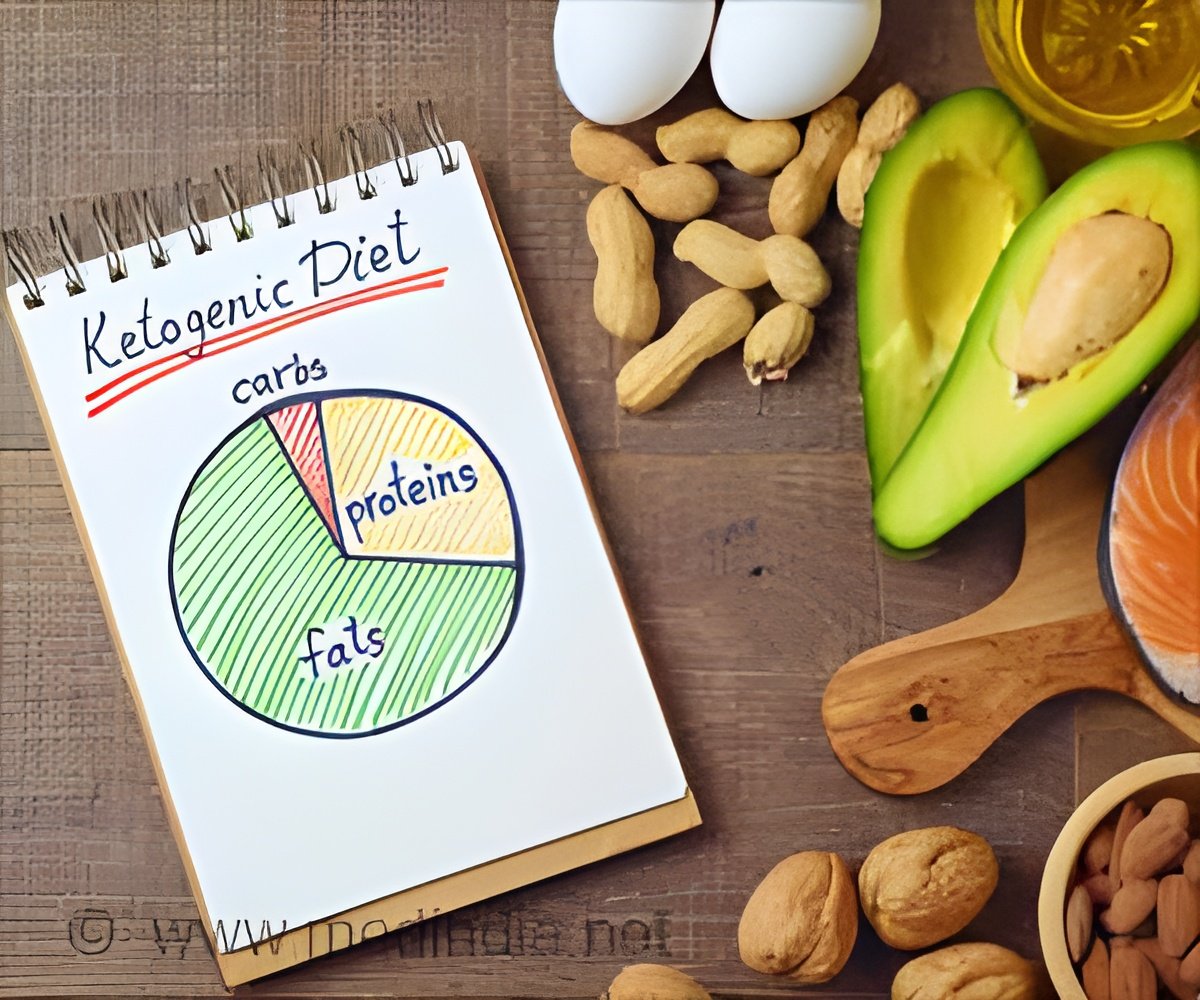A ketogenic diet can restart stalled menstrual cycles in women, with many reporting changes in frequency and intensity.

Increasing ketone levels in the blood through a ketogenic diet or supplements may help regulate irregular menstrual cycles or restart a period that has stalled(1✔ ✔Trusted Source
Self-reported menses physiology is positively modulated by a well-formulated, energy-controlled ketogenic diet vs. low fat diet in women of reproductive age with overweight/obesity
).
Among 13 pre-menopausal participants who achieved nutritional ketosis, 11 reported at least one change in menstrual frequency or intensity during a trial comparing weight loss results on low-fat and ketogenic diets, with and without the addition of ketone supplements.
Advertisement
Ketogenic Diet May Help Restart Irregular Menstrual Cycles
In contrast, women following low-fat diets did not report any changes in their periods. All participants lost a similar percentage of weight, with an average age of 34, and all were healthy but classified as overweight.
“There were six women who hadn’t had a period in over a year– who felt like their typical cycles were over. And their periods actually restarted on the diet,” said Madison Kackley, lead author of the study and a research scientist and lecturer in human sciences at The Ohio State University.
“Our hypothesis after seeing these results is that the presence of ketones may help regulate women’s health in regard to endocrine, cognitive and metabolic influences.”
The study was published recently in PLOS ONE.
As a PhD student, Kackley worked in the lab led by Jeff Volek, senior author of the paper and professor of human sciences at Ohio State, who has been studying the health effects of the very-low-carbohydrate/high-fat ketogenic diet for 25 years.
The keto diet converts fat into ketones used by cells in the body and brain as an alternative to glucose. Supplements also elevate blood ketones without a change in eating habits. All are designed to put the body in nutritional ketosis – the human body’s state when it has greater access to ketones as both fuel and a signaling molecule.
Nineteen women participated in the weight-loss diet trial – seven on a ketogenic diet alone, six on a keto diet combined with ketone salt supplements, and six on a low-fat diet. Researchers provided all of the food for the six-week study.
Both interventions resulted in clinically significant weight loss, less body fat, healthier cholesterol levels and better insulin sensitivity.
Advertisement
Ketogenic Diet Influences Menstrual Cycles
Menstrual history was one of dozens of lifestyle questions researchers asked about in biweekly assessments. Participants’ self-reports about their cycles took Kackley and colleagues by surprise.
“It’s not a validated survey, but when we were reviewing responses, we realized we were changing the majority of these women’s cycles. Even for women who had normal menstrual cycles, their frequency changed,” Kackley said. “One of our participants was 33 years old and had never had a period in her life. She had her period for the first time after being in nutritional ketosis for five days.”
The two women who reported no change to their cycles were taking oral contraceptives. Women who reported menstrual changes were not using birth control.
Digging deeper into findings related to ketone supplementation is one goal of Kackley’s research program going forward. While the addition of keto salts to the diet did not contribute to improved weight or health markers, ketone levels were high in all of the women on the keto diet – including the two whose menstruation didn’t change. The finding hints at an individualized effect of added ketones in the blood.
Advertisement
Ketones’ Role in Women’s Health and Menstrual Regulation
“It was just the presence of ketones that essentially changed the menstrual cycle,” she said. “So if we’re looking for that signaling effect as opposed to a weight loss effect, then I think ketone supplementation could actually play a role in the grand scheme of hormonal regulation.”
Kackley is now working to pin down the mechanisms that explain this association. She has established a new lab at Ohio State dedicated to studying links between nutrition, exercise and women’s health.
As part of evaluating and selecting a tool to standardize tracking of research participants’ menstrual cycles in future studies, her team is currently monitoring a pilot group of women for the range of changes that occur between and during periods: muscle strength, fat composition, water retention, energy expenditure, hormone levels, body temperature and more. As far as Kackley is aware, this comprehensive data has never been collected before for the purposes of addressing cyclical changes with nutrition and/or exercise.
She envisions identifying interventions that not only help resolve women’s health concerns – such as polycystic ovary syndrome, perimenopause, and postpartum depression, which her lab is currently studying – but also take some of the mystery out of menstruation, especially when it’s irregular or stops. An estimated 5 to 7% of women of reproductive age in the United States experience three months without a period each year.
“This research is incredibly important because there are so many unanswered questions for women,” Kackley said. “We’re trying to change things for women and give them some control – something we historically haven’t had over our reproductive status.”
Reference:
- Self-reported menses physiology is positively modulated by a well-formulated, energy-controlled ketogenic diet vs. low fat diet in women of reproductive age with overweight/obesity – (https://journals.plos.org/plosone/article?id=10.1371/journal.pone.0293670)
Source-Eurekalert



